US election poll tracker: Who is ahead - Clinton or Trump?
Tue 08 Nov 2016, 11:50:13
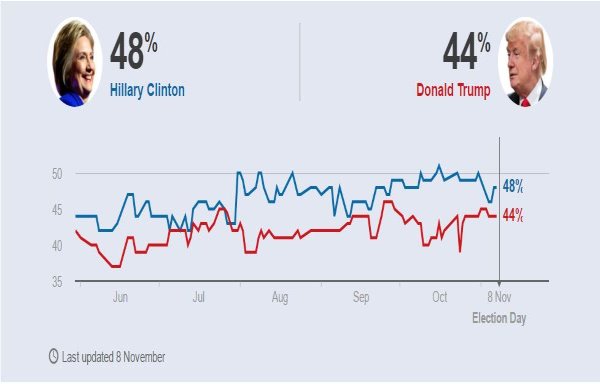
Americans will vote on 8 November to choose their next president.
The numbers have begun to tighten as we approach election day amid crises affecting both Democratic contender Hillary Clinton and her Republican rival Donald Trump.
Use our tracker to follow the contest and scroll down to find some explanation on what the polls show.
The BBC poll of polls looks at the five most recent national polls and takes the median value, ie, the value between the two figures that are higher and two figures that are lower.
What do we know from early voting?
Some form of early voting is in place in most states across the US, meaning much of the electorate will have cast their ballot before election day.
Although those votes are not counted until polls close on Tuesday, some states release data on the number of early votes and how many were from registered Republicans or Democrats.
In Nevada, for example, we know that of nearly 800,000 votes cast before early voting closed on 4 November, 42% were by registered Democrats while 36% were registered Republicans. Those numbers aren't too different to 2012 when Barack Obama took the state with a winning margin of 6.7%.
Of course, there's nothing to say that those registered with one of the parties will definitely vote that way, especially since both Mr. Trump and Mrs. Clinton have made direct appeals to supporters of the other party who may be disillusioned with their candidate.
But in general, the Nevada data comes as a surprise, because much of the recent polling in the state has suggested Donald Trump is in the lead. That doesn't necessarily mean the polls are wrong - Mr. Trump could have a groundswell of support on election day - but if they are, it may suggest they are finding it hard to account for the surge in Hispanic voters.
That Hispanic surge has been noticeable in several states, including Arizona, Colorado, Florida and North Carolina, according to the analysis by Catalyst, a data firm working for Mrs. Clinton campaign team.
In previous elections, it has been less clear who Hispanic voters would back (Republican President George W Bush won 40% of their votes in 2004), but this year it's clearer thanks in part to Mr. Trump's tough rhetoric on immigration and Mexicans. Research group Latino Decisions projects that 79% of Hispanic voters will support Hillary Clinton.
One thing we know for sure is that far more people voted early in this election than in the past. In 2012, the total number of early votes cast was just over 32 million. More than 40 million people voted early in 2016.
The bad news for Hillary Clinton is that the polls had already begun to tighten both nationally and in some key battleground states before FBI chief James Comey announced a new inquiry into her email use on 28 October.
In the ABC News/Washington Post tracking poll, for example, Mrs. Clinton was ahead of Donald Trump by 12 points on 23 October, but that lead had narrowed to one point a week later.
Enthusiasm for Mrs. Clinton had slipped slightly in that poll, with the number of her supporters who said they were very enthusiastic about her down from
51% to 47%.
51% to 47%.
Polls do tend to tighten as election day approaches anyway, but it appears news of the inquiry did have some effect on Mrs. Clinton's numbers.
Mr. Comey announced on 6 November that the inquiry had found nothing to change the bureau's conclusion this summer that she should not face criminal charges - but the damage may already have been done.
Donald Trump has been hit by several scandals since his campaign began. The most notable were the release on 7 October of a video in which he can be heard boasting about sexually assaulting women. He said his comments were "just words" and denied ever having groped a woman - but several have since come forward alleging just that.
This would have been enough to end the campaigns (and political lives) of many candidates, but Mr. Trump has survived. Indeed, one CNN poll released on 24 October put him on 45% - exactly the same figure he was on in the previous CNN poll released on 3 October. Both polls had Mrs. Clinton leading on 51%.
Mr. Trump's ability to continually poll around 40% nationally while rarely going above 45% has led many analysts to describe his support as having a high floor but a low ceiling. Mr. Trump got more primary votes than any Republican in history but the polls show he has struggled to attract voters from outside his large and loyal base.
Should we trust the polls?
As election day approaches, Donald Trump is being increasingly outspoken about the polls, describing those that show him behind as "dirty" and accusing polling companies of "tremendous dishonesty".
But Mr. Trump hasn't provided any evidence to back up his claims and there is nothing to suggest that any national poll has been intentionally skewed to favor one candidate over the other.
And despite his rhetoric, Mr. Trump's campaign team seem to believe the numbers. "Nate Silver's results have been similar to ours," digital director Brad Parscale told Bloomberg, referring to the polling analyst at FiveThirtyEight, which has continually shown the Republican candidate trailing Hillary Clinton.
Polling isn't easy and the companies carrying them out have to overcome a number of challenges in the process - but research shows they are more accurate the closer we get to election day.
Trump says the election is rigged. Is he right?
How important are national polls?
It's a tough task to gauge the mood of a nation that is home to more than 300 million people but that doesn't stop the pollsters from trying.
National polls tend to have a sample size of about 1,000 people or more and can track movement and general opinion pretty well.
But the US election is won and lost in swing states and decided by the electoral college system.
This means that polls in states where either candidate could win (Florida, Ohio and Pennsylvania, to name just a few) play an integral role in election projections.
What is the US electoral college?
How does a US presidential election work?
line
Who is ahead in the battleground states?
We've identified 13 states that can be considered battlegrounds in this election.
No Comments For This Post, Be first to write a Comment.
Most viewed from International
Most viewed from World
AIMIM News
Latest Urdu News
Most Viewed
May 26, 2020
Can Lionel Messi's visit boost Indian football?
Latest Videos View All
Like Us
Home
About Us
Advertise With Us
All Polls
Epaper Archives
Privacy Policy
Contact Us
Download Etemaad App
© 2025 Etemaad Daily News, All Rights Reserved.

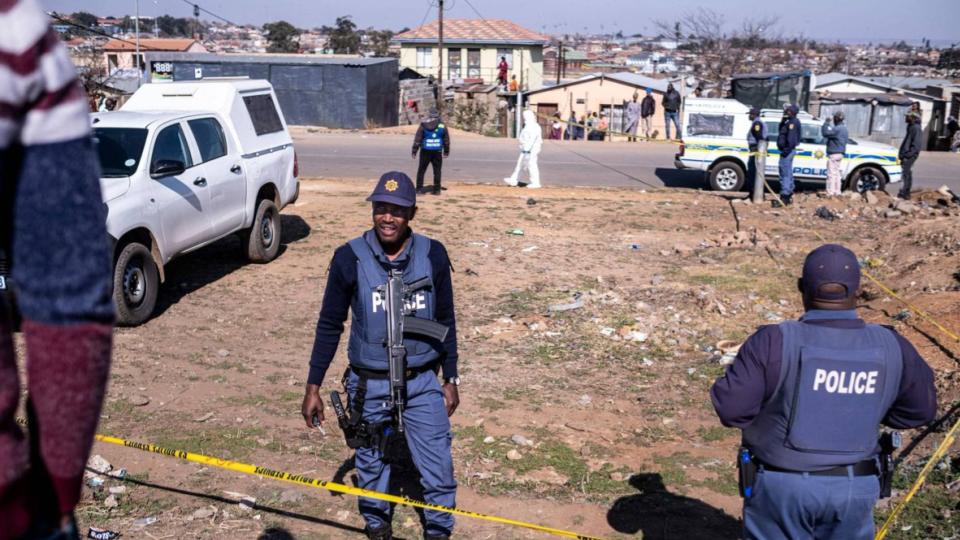
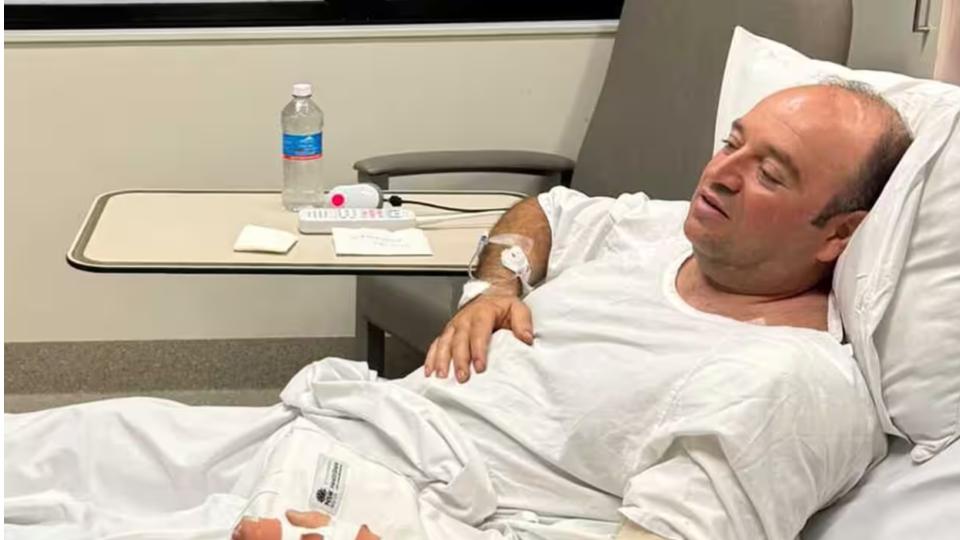
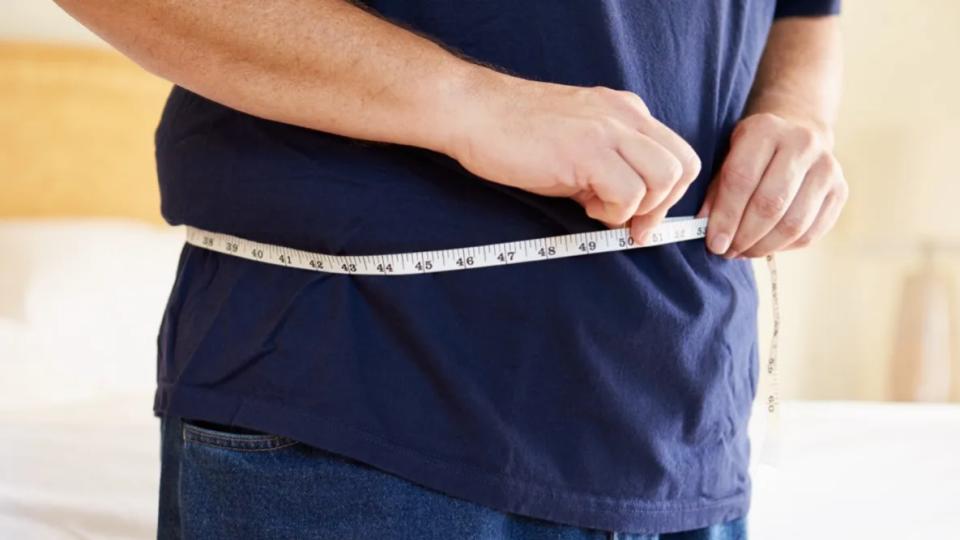
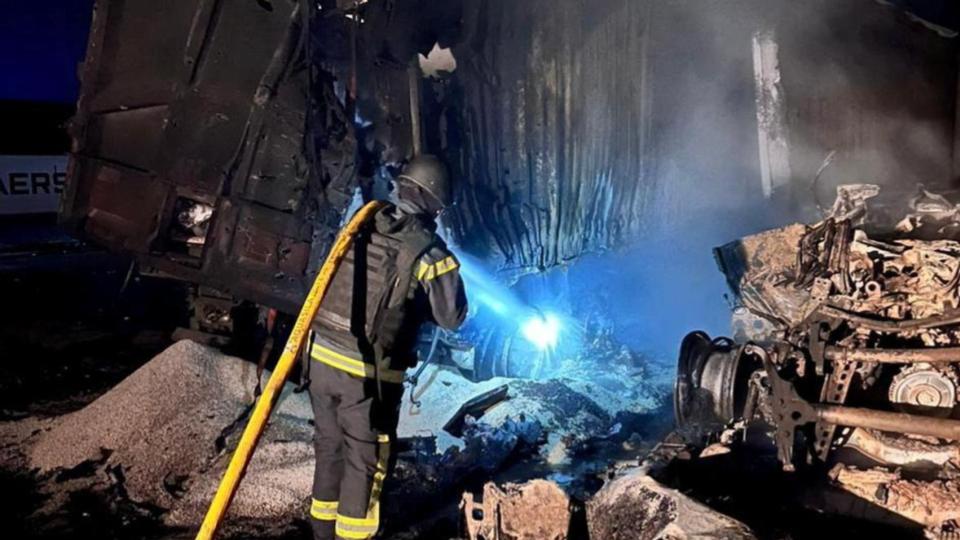
.jpg)

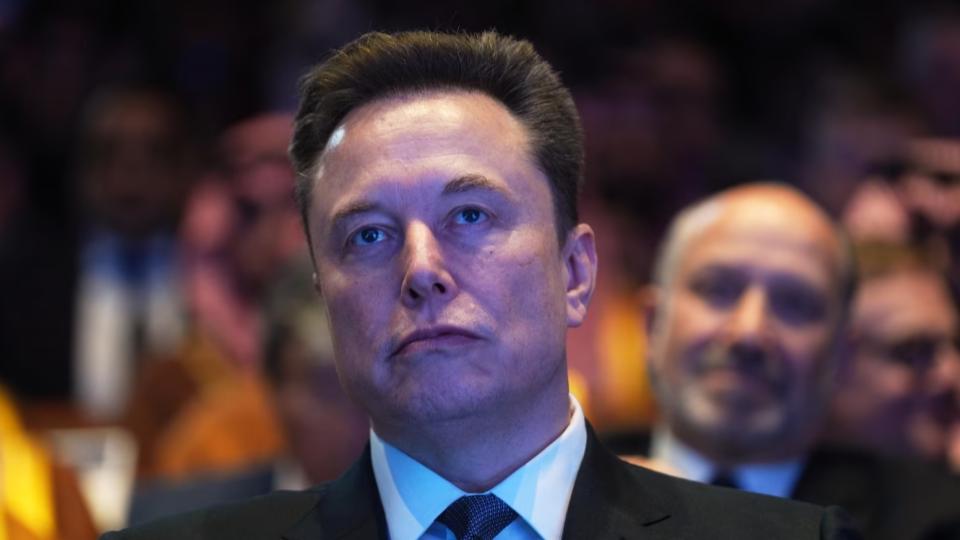
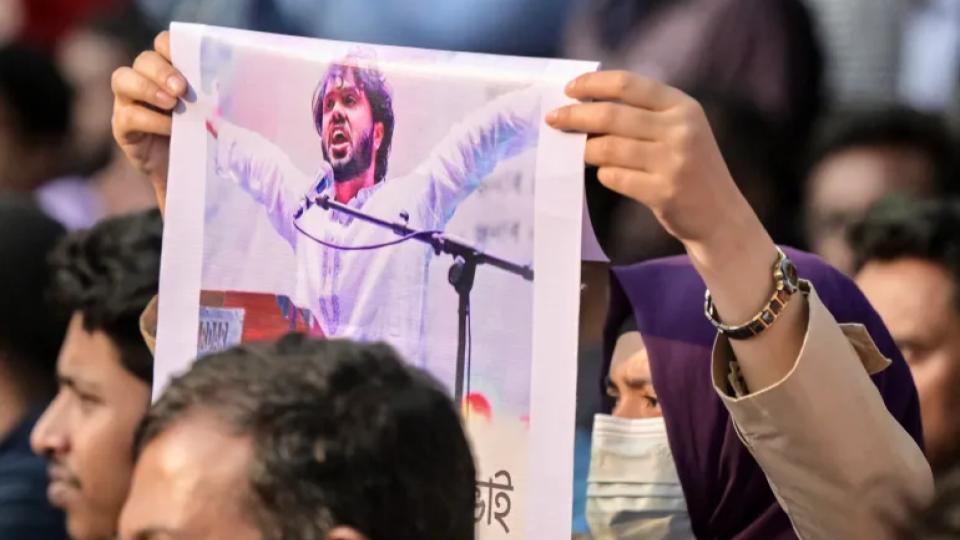
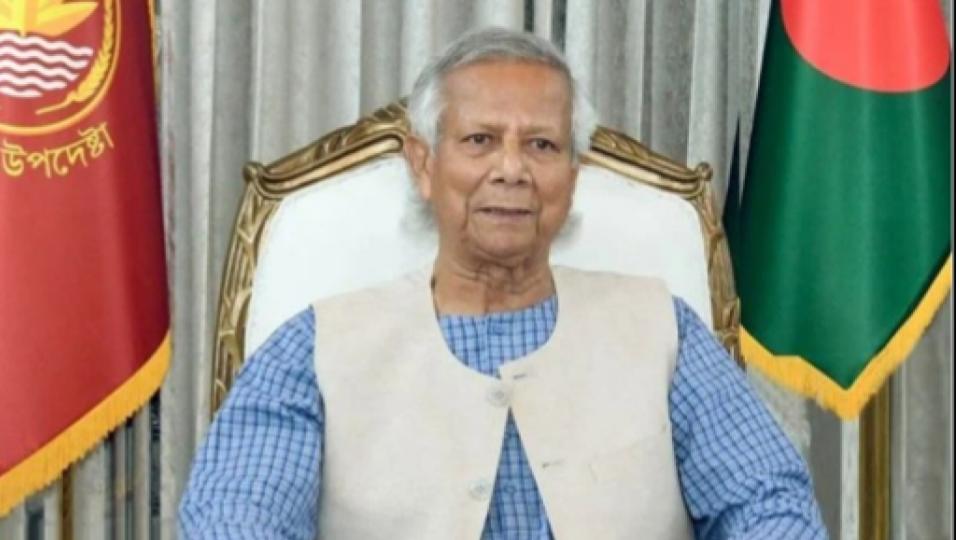
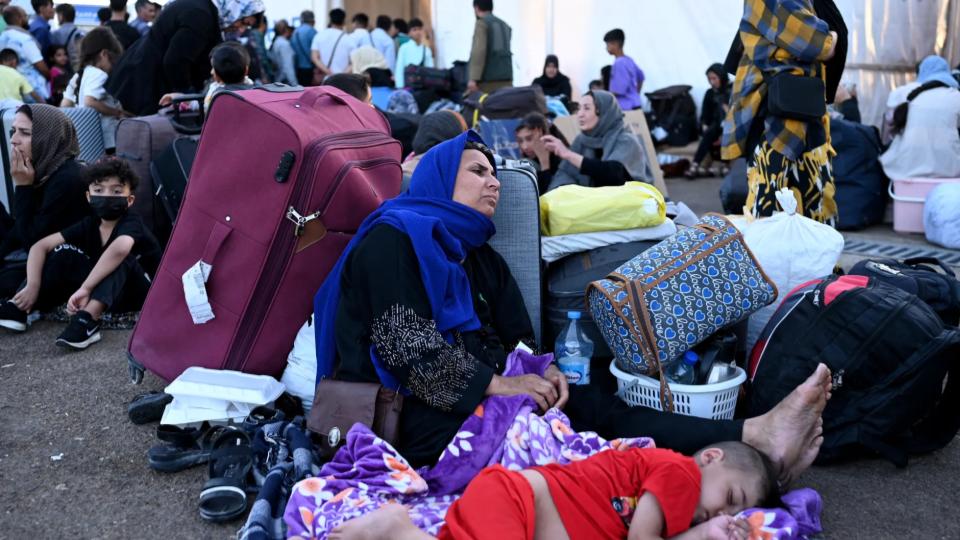


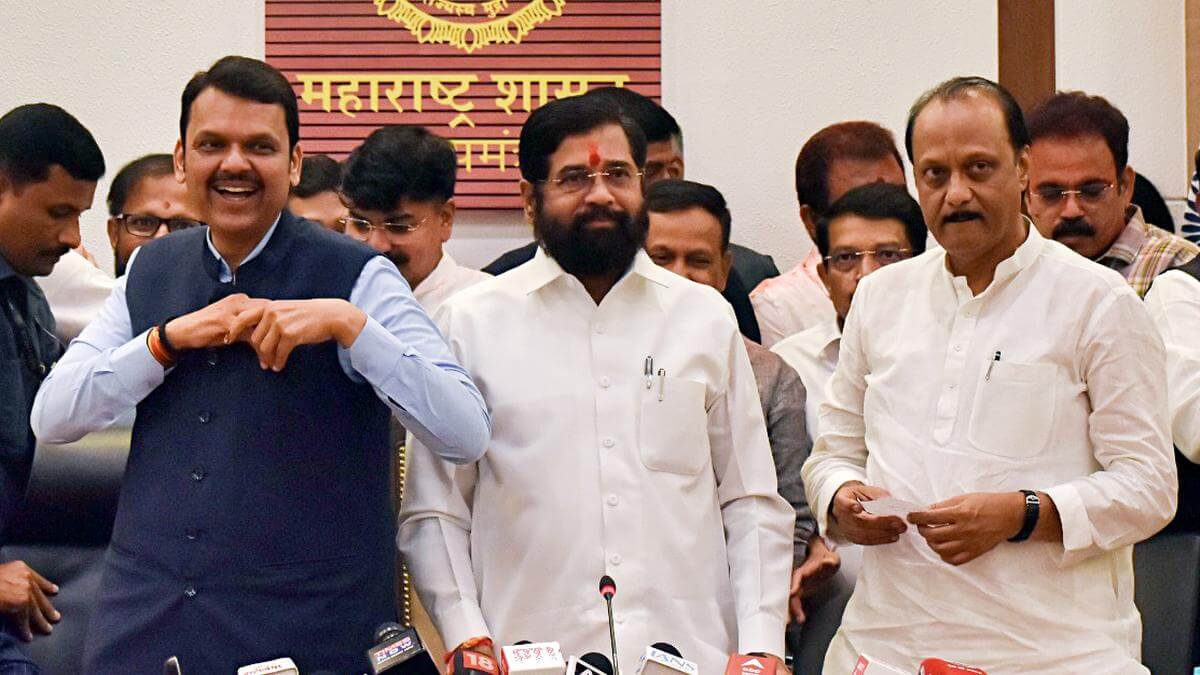
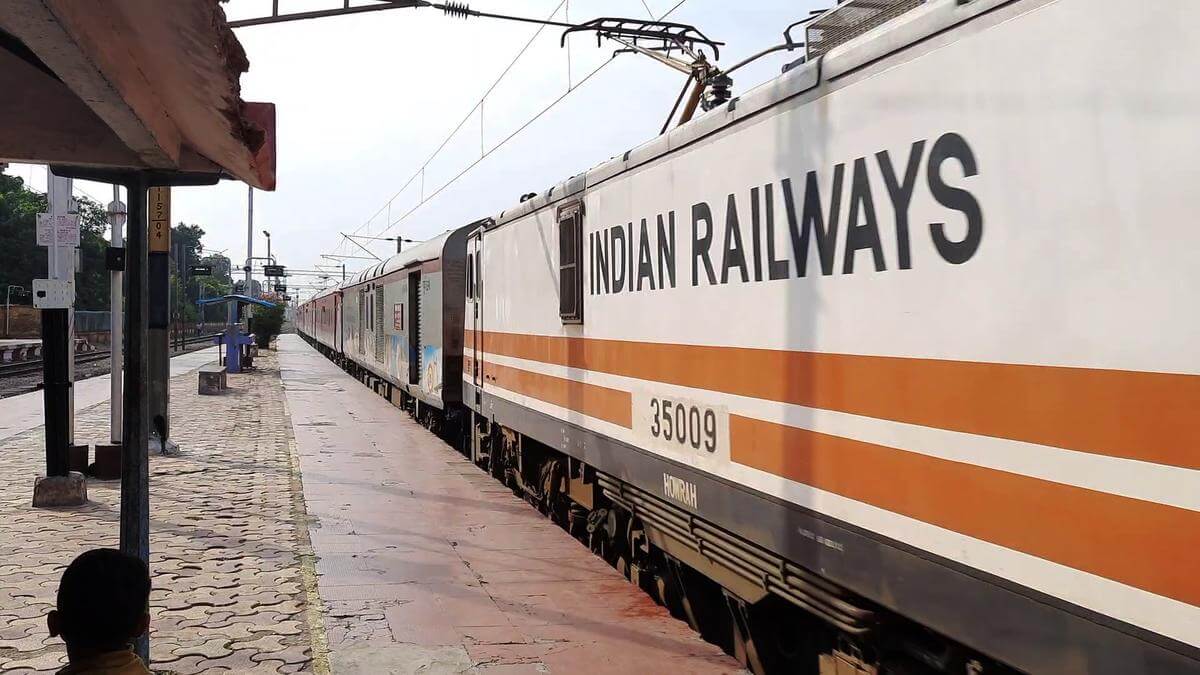
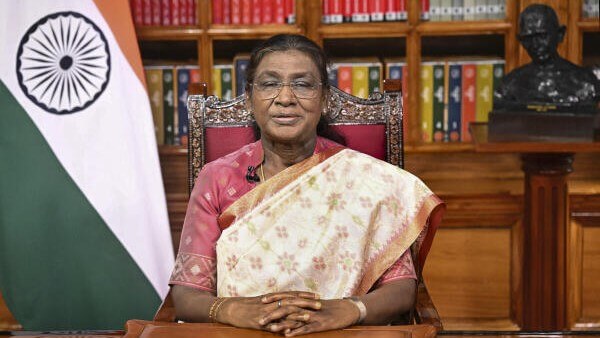
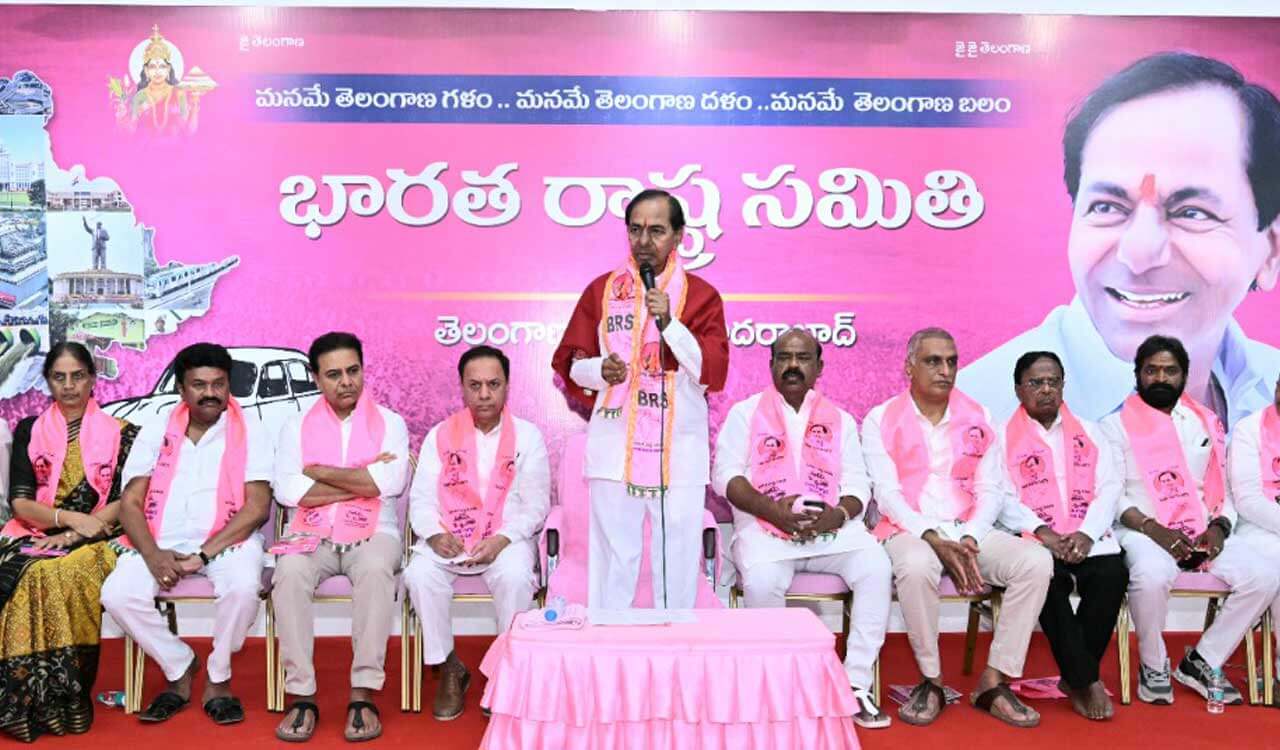
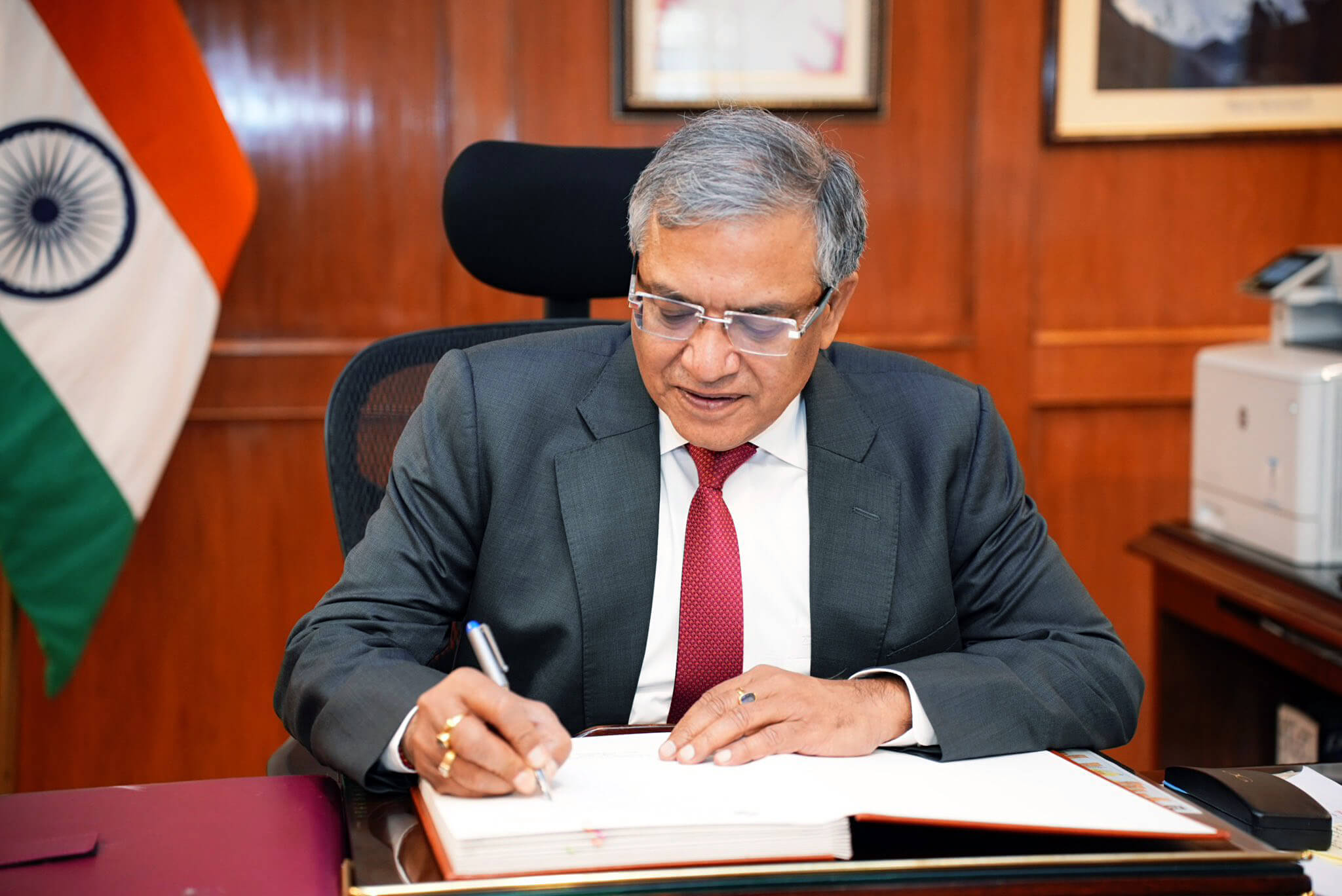
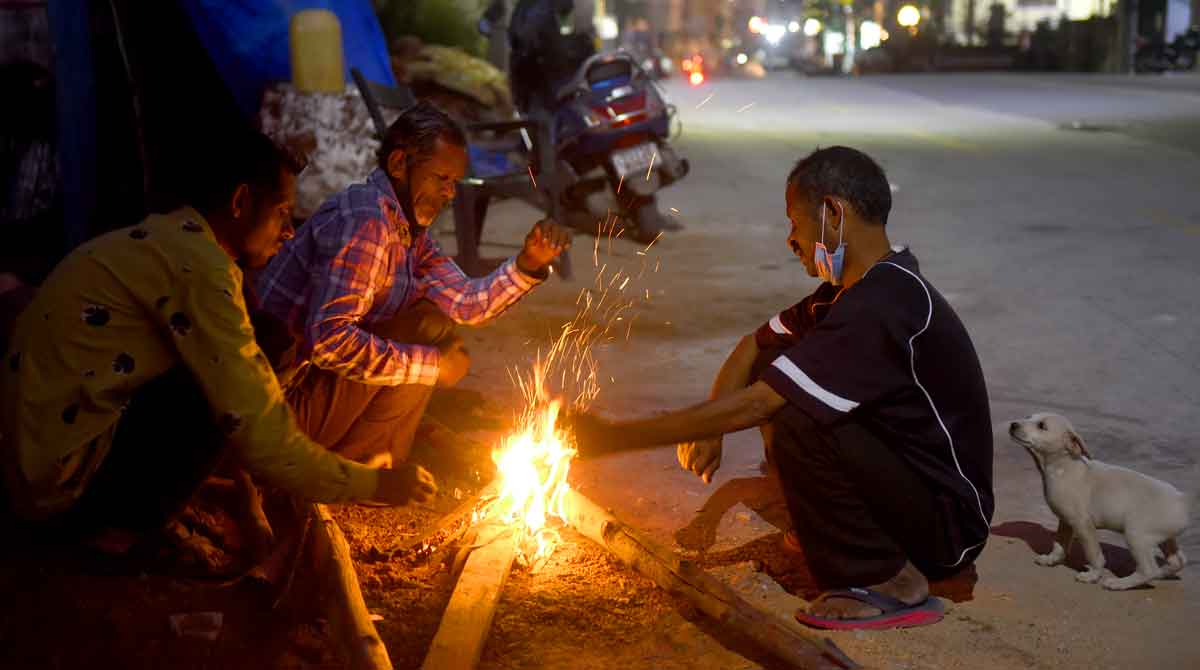

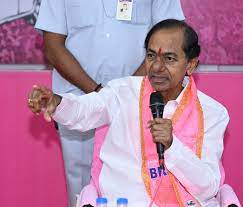
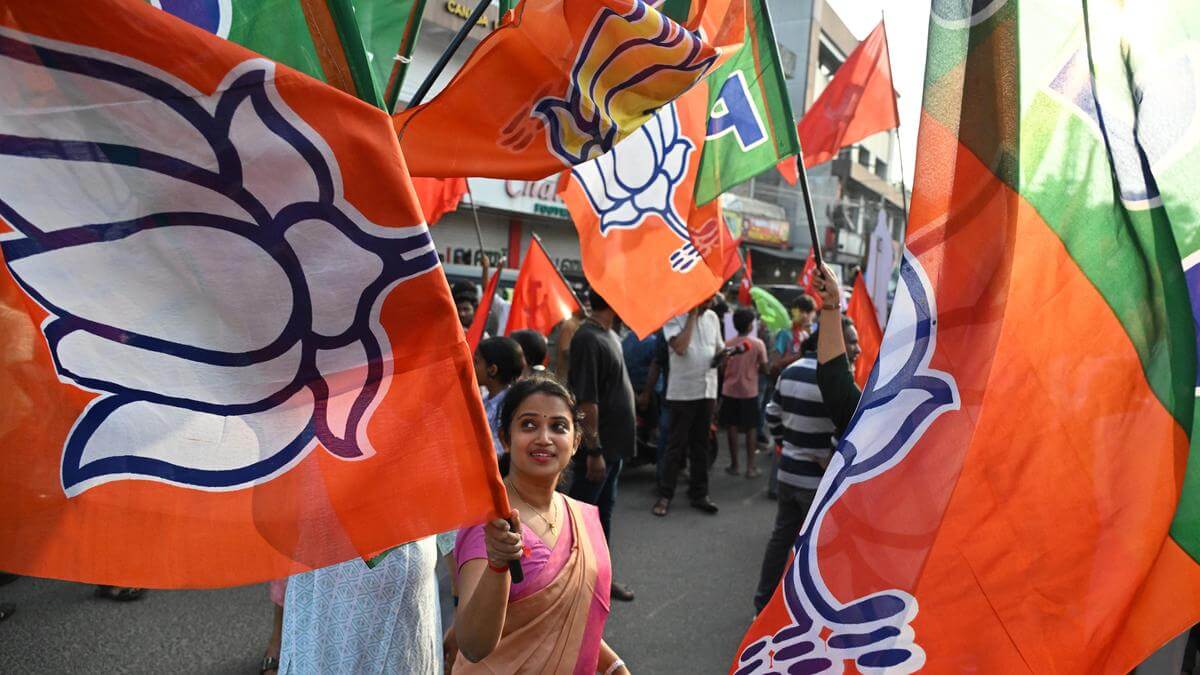
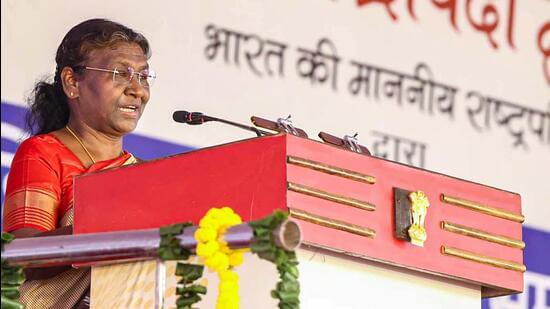
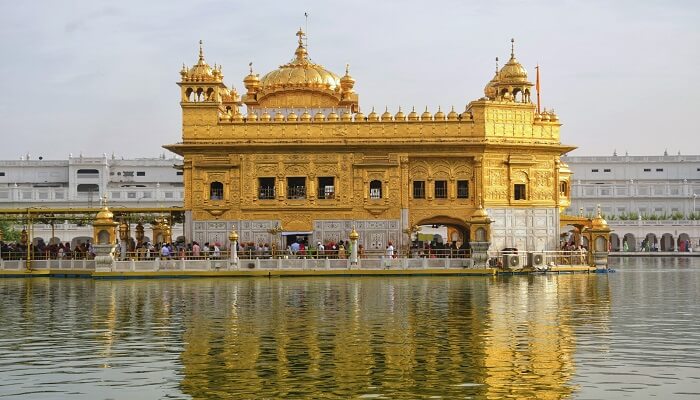
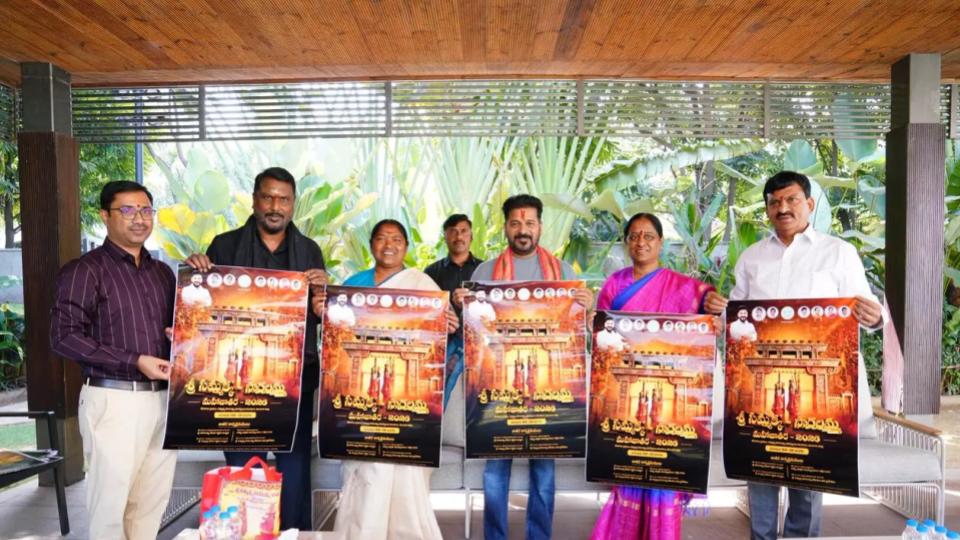

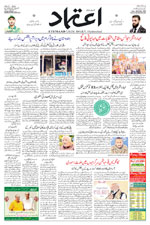










.jpg)
.jpg)
.jpg)


